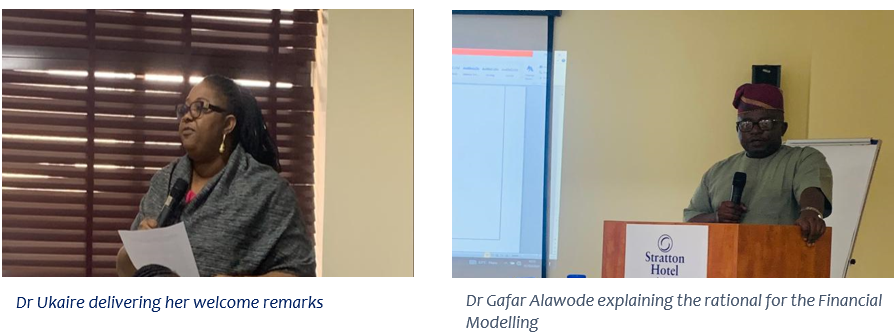Inadequate financing has been identified as a major factor that affects the implementation of strategies geared towards improving reproductive and maternal health (RMH) in Nigeria. In order to transform the financing landscape for reproductive and maternal health, the Federal Ministry of Health (FMoH), in collaboration with Clinton Health Access Initiative (CHAI) and DGI Consult, is in the process of introducing a financial modelling tool, which will help in accurate costing and financial forecast. The financial modelling tool, which is based on One Health Tool (OHT), will also help in generating evidence of resource gaps, which could be used for evidence-based advocacy and planning. As part of the processes of implementation of the financial tool, a 2-day stakeholders’ meeting was organized to review the tool and seek stakeholder’s input.

A cross-section of participants at the meeting
Chaired by Dr. Binyerem Ukaire, Director and Head of the Reproductive Health Division at the FMoH, the meeting saw robust participation from key stakeholders within and outside the Family Health Department. Dr. Ukaire’s welcome address underscored collaborative efforts toward achieving reproductive health goals in Nigeria, emphasizing the imperative of addressing existing gaps in healthcare infrastructure and access to contraceptives.
DGI Consult team led by Dr. Gafar Alawode presented the rationale for the federal-level RMH financial modelling tool, emphasizing its pivotal role in estimating costs, incorporating revenue streams, and strengthening capacity within the Ministry of Health. The team also demonstrated the capacity of the tool to the participants.

Central to the discussions of the meeting is the financial strategy for RMH financing in the country. Mr. Ajibola Abdul-Rahman of DGI Consult described the current gaps in RMH financing in the country and how the development of a Financial Strategy for the RMH program can bridge some of the gaps.
As Nigeria navigates complex healthcare challenges, the outcomes of this meeting signal a proactive step towards achieving equitable and accessible reproductive and maternal healthcare services nationwide with the help of a digital tool. The tool will be finalized and deployed in the next few months.
Comments are closed.